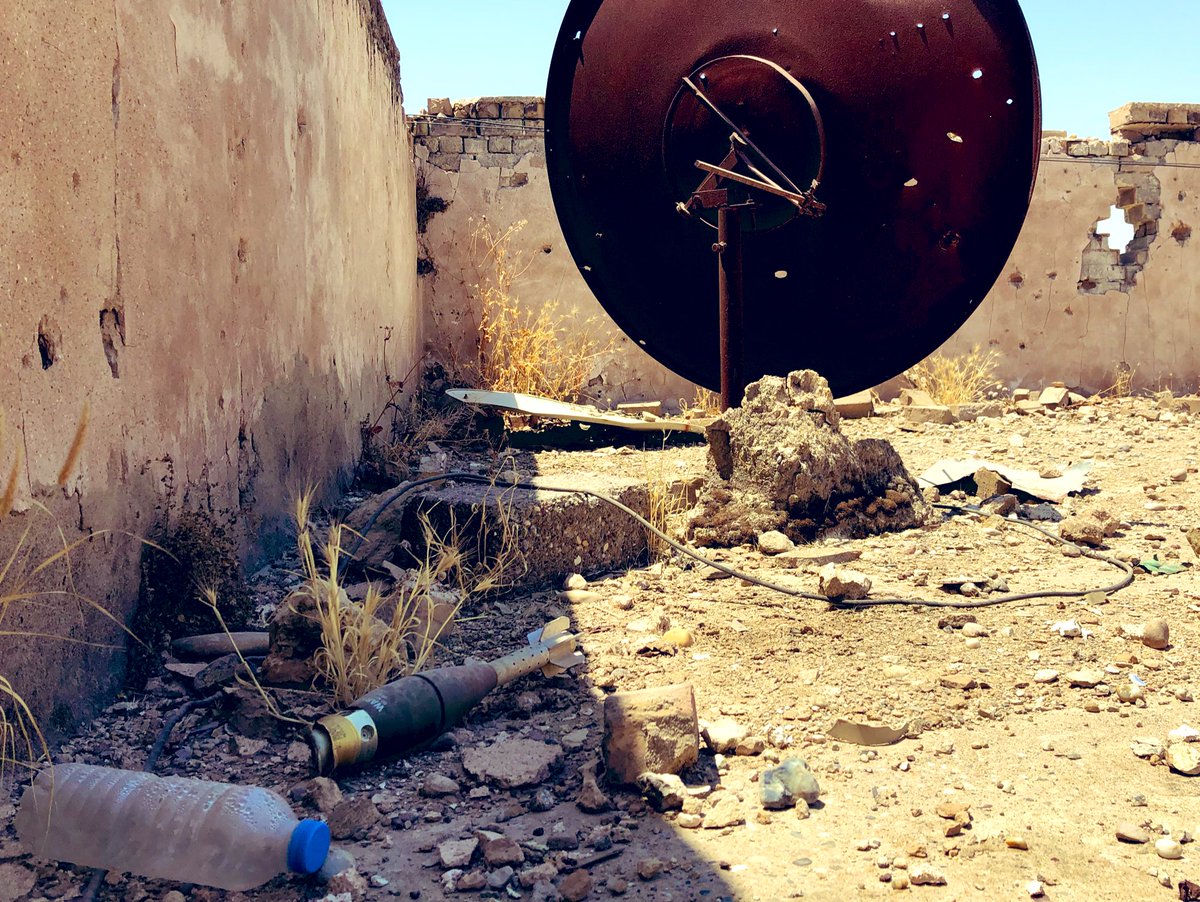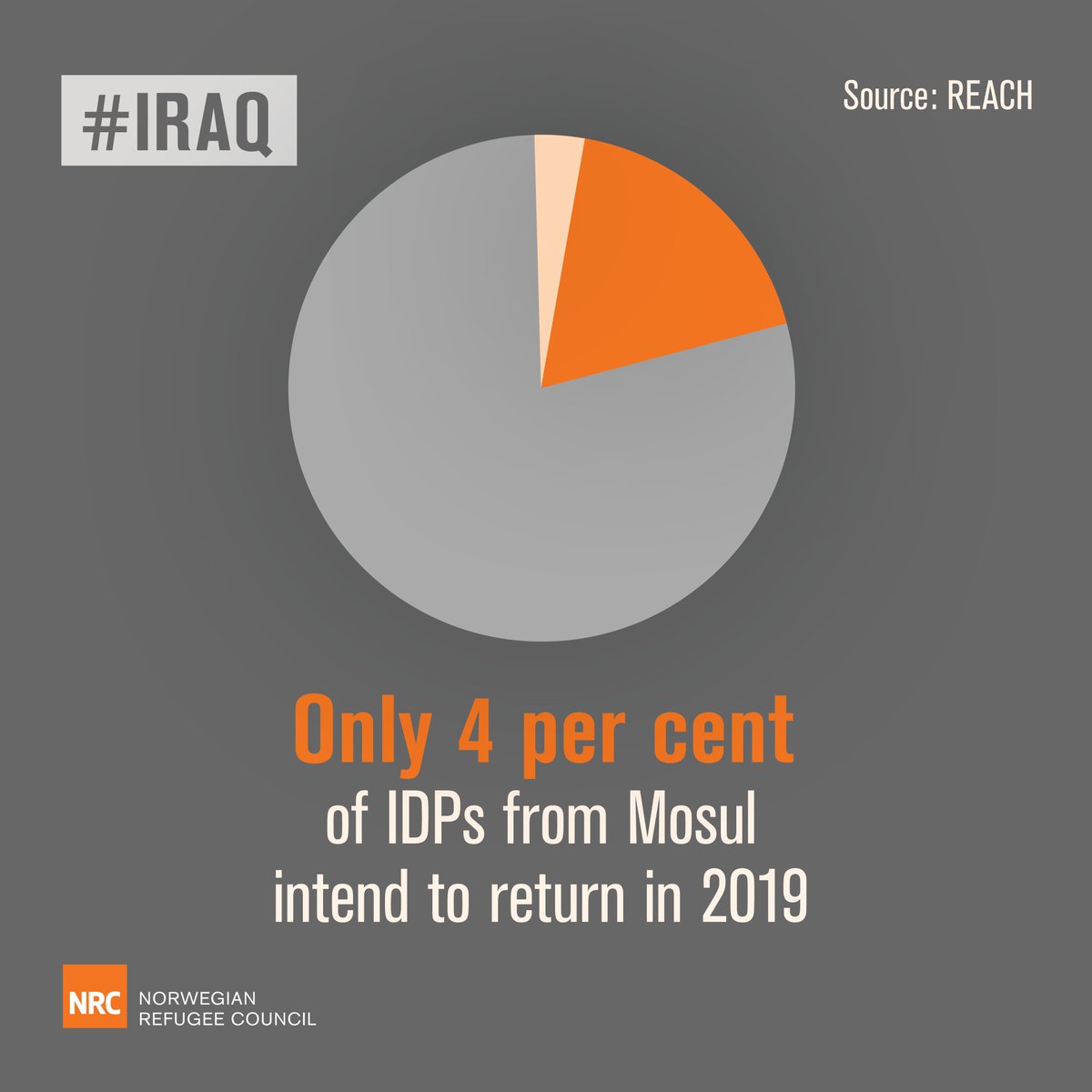Iraq snashot Monday, July 8, 2019
Monday, July 8, 2019. The failures in Iraq -- no vanquished ISIS, no rebuilt Mosul, nothing the government's done that qualifies as a success at all.
In June 2014, the Islamic State seized control of Mosul. In July of 2017, the city is finally 'liberated.' What's going on now?
PRESS RELEASE: More than 300,000 residents of #Mosul district are still #displaced with no homes to go back to, 2 years since the end of the military operation to retake the city from the Islamic State group.
Two years have passed since the war ended in #Mosul. Yet the old city is still totally destroyed and nobody has yet returned. Watch @NRC_Norway’s @Tom_Peyre_Costa in west Mosul, #Iraq
- NRC MiddleEast Retweeted
If you ever doubt what a failure the government of Iraq is, look no further than Mosul. Two years after 'liberation' and Mosul remains in ruins.
And ISIS remains in Iraq so no victory there either. Yesterday, AFP reported, "Iraq’s military announced a new operation Sunday in an attempt to secure the vast western desert leading to the Syrian border, amid fears jihadist sleeper cells were using the area to regroup. The operation, dubbed 'Will of Victory,' began early Sunday morning and would push to clear the remote territory between the provinces of Salahaddin, Nineveh and Anbar, a statement by the military said."
- Iraq launches ‘Will of Victory’ operation against ISIS sleeper c rudaw.net/english/middle… via @RudawEnglish
Iraqi Prime Minster Adil Abdul-Mahdi also released an official statement on Sunday praising the role of the Iraqi army in the fight against ISIS.
“Today we announce the [Will of Victory] operation to defeat ISIS sleeper cells in Iraq as we have always done, our Iraqi army heroes will come back victorious for sure and add more victories to their record that will be written in golden words. I wish you all the success and prayers of all Iraqis are with you.” Abdul-Mahdi said, according to a statement published by the Security Media Cell.
On May 29, the UK Ambassador to Iraq John Wilks released a short video statement urging the Iraqi government to act against the frequent attacks launched by ISIS remnants and sleeper cells in remote and disputed areas of Iraq.
They didn't vanquish ISIS, they didn't repair Mosul. What success has the Iraqi government had?
1000s detained, including kids, in degrading conditions in #Iraq. Overcrowding doesn't solely affect the detainees, but also the community as a whole. Authorities should ensure that conditions in prisons do not foster more grievances in the future.
hrw.org/news/2019/07/0…
What's she talking about?
Iraqi armed forces, paramilitary units of the Shiite-dominated Hashed al-Shaabi, tribal groups and U.S.-led coalition warplanes were all taking part, according to the statement.
Thousands of men, women and children charged with terrorism are being detained in overcrowded and degraded conditions amounting to ill-treatment in Iraq’s northern Ninevah province, Human Rights Watch (HRW) has said.
The NGO calls on Baghdad to ensure humane treatment and “that there is a clear legal basis for detentions”. Detainees should be released if this does not apply and the government cannot improve detention centre conditions.
Lama Fakih, HRW acting regional director, said: “The Iraqi government urgently needs to rebuild and rehabilitate its detention facilities. Iraq has a duty to ensure that detainees are housed decently, in line with international standards.”
United Nations standards for prison conditions, called the Mandela rules, require that prisoners’ health must be safeguarded by the provision of space, heating, ventilation and sanitary installations.
Nineveh prison conditions have been labelled “tragic” and “catastrophic” by a Nineveh MP following a visit to the province’s prisons, hot on the heels of a damning Human Rights Watch report released Thursday detailed the “degrading” conditions faced by detained women and children.
Sherwan Dubardani and Tuama al-Lihibe visited Tel Kayf and Faysalyah prisons on Sunday, alongside Nineveh deputy governor Sirwan Rozhbayani.
"Truth to be told, what Human Rights Watch reported was small relative to the actual catastrophe inside the prisons of Nineveh," Sherwan Dubardani, a Kurdish Democratic Party MP from Nineveh told reporters.
"The situation is tragic, and what we saw inside the prisons of Nineveh province is a real humanitarian catastrophe," Dubardani said, saying "tens" of sentenced individuals are crammed into a single square meter.
Last Thursday, a Human Rights Watch report slammed Iraq’s authorities for “degrading” conditions in Nineveh’s prisons that it said it amounted to “ill-treatment”.
Rozhbayani said local government "will never accept" these conditions.
"You can't mix juvenile and women prisoners with those of terror," he added, warning of possible radicalization.
There are six thousand individuals in various phases of prosecution in the two prisons, of which 1,050 are juveniles and 220 are women. 244 of the minors have been sentenced, according to Dubardani.
Central government is to blame for overcrowded facilities in Nineveh, Dubardani claimed.
Failure, failure, failure all around. However, one needed update? News learned from
Abbas Kadhim recent piece at the ATLANTIC COUNCIL is that the Parliament confirmed a Minister of Defense and a Minister of the Interior on June 24th. The Minister of Defense is Najah al-Shammari, the Minister of Interior is Yaseen al-Yasiri and Faruq Ameen has been named Minister of Justice. Since October, these positions had been empty. As of June 24th, they were filled. (The Minister of Education post remains empty.) Suadad al-Salhy (AP) reported on June 24th, "Parliamentary approval of the three ministers came on the eve of a deadline by Shiite cleric Moqtada Al-Sadr to the prime minister and leaders of political blocs to fill the vacant ministries."
Back in April, THE BAGHDAD POST wrote about al-Shammari:
Kazim al-Shammari, head of Wataniya Coalition's bloc, denied reports claiming that their bloc's candidate for the defense ministry has acquired the Swedish nationality.
"Defense Ministry's candidate Najah al-Shammari is not included by the procedures of accountability and justice. He also does not have the Swedish nationality or passport," the bloc's head said.
He also described the ministry's candidate as "a patriotic figure who has the competence that make him capable of facing the challenges of the post," adding that the coalition headed by Ayad Allawi took the decision to nominate the candidates for the defense ministry based on these qualities.
The bloc's head said that such allegations have become "familiar," adding that some political parties target the patriotic competent figures and "seek to maintain chaos in the institutions of the state."
Yassin Taher al-Yasiri was born in Baghdad in 1958. He served as adviser to the minister of interior. He is a lecturer at the Police College, and the High Institute for Security and Administrative Development.
Yasiri is a researcher and author in international law and the security strategies. He holds a doctorate in public law philosophy from Al-Nahrain University.
Yasiri has joined the Ministry of the Interior in 1979, and has held many leadership positions in the ministry.
Yasiri is backed by Ammar al-Hakim, a senior Shia leader, whose parliamentary bloc with 19 seats recently announced they would play the role of the opposition during this parliamentary term.
So failed prime minister Adil Abdul Mahdi at least -- and at last -- succeeded by meeting the deadline movement leader and Shi'ite cleric Moqtada al-Sadr imposed upon him.
At ARAB WEEKLY, Tallha Abdulrazaq argues, "Also, the United States needs to stop mollycoddling the Iraqi regime and must acknowledge that Washington utterly failed to introduce a functioning democracy in Iraq and helped to create and embolden the Iranian threat it now faces." Yes, the US government has failed.
We'll close with this Tweet.


















No comments:
Post a Comment